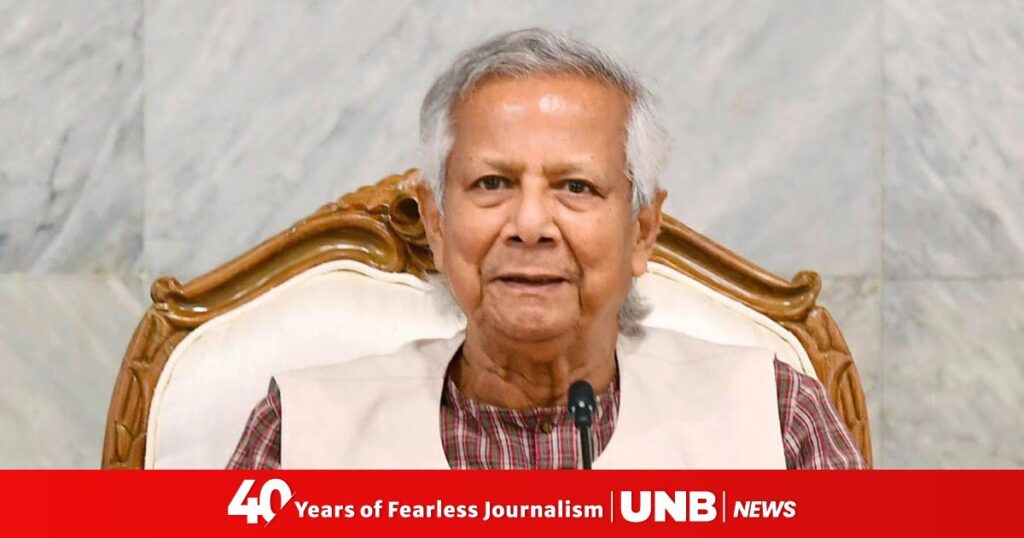Chief Adviser Professor Muhammad Yunus on Friday called upon the people of the country to continue their strong support for the interim government’s port management reform initiative, stressing that they envision Bangladesh as a key economic hub in South Asia.
“We envision Bangladesh as a key economic hub in South Asia. To achieve this, we are not only boosting investment services but also expanding the capacity of our ports,” he said uurging all citizens not to fall victim to baseless opposition and misinformation.
In a televised speech to the nation, Prof Yunus said, “Stay united in your support for the government’s efforts to reform port management and resist those who seek to undermine it.”
Reflecting on the country’s progress since independence in 1971, Professor Yunus noted that Bangladesh has not yet reached the level of economic advancement it deserves.
Failure to modernise the ports, he warned, would perpetuate the country’s unemployment crisis and stall economic development.
Addressing public speculation regarding the Chittagong Port, Professor Yunus said, “There have been rumors that the port is being handed over to foreign entities. Let me be clear—Chittagong Port is the heart of Bangladesh’s economy. Currently, this heart is weak. We must strengthen and modernise it if we are to move the economy forward.”
He emphasised that transforming the port requires a series of strategic actions and collaboration with global experts.
The interim government, he said, is working with leading international port operators from Europe, North America, Asia, and the Middle East to bring world-class expertise to Bangladesh.
Prof Yunus dismisses ‘Corridor to Rakhine’, reaffirms Rohingya repatriation
“These firms manage ports across the globe—in countries like Canada, Australia, China, South Korea, India, Pakistan, Turkey, and beyond. Our goal is to learn from them and develop our own capabilities. I am confident that if we begin now, by 2031 we will be well-equipped, and by 2036, Bangladeshis will be managing ports around the world,” he said.
Professor Yunus said many employment opportunities will open up for Bangladeshis both at home and abroad as a result of this knowledge transfer.
“Soon, wherever you go—to ports across the world—you will find people from Chittagong, Noakhali, Sylhet and Barishal working there. Our people will be globally recognised for their expertise,” he said.
Prof Yunus also highlighted the broader regional impact of modernised Bangladeshi ports. “Once upgraded, our ports won’t just serve Bangladesh—they will become vital to the economies of our neighbors, including Nepal and Bhutan,” he noted.
The Chief Adviser envisioned the entire coastal region—from Kumira to Teknaf—emerging as a major economic zone, with new industrial hubs and modern infrastructure driven by port efficiency and sea access.
“This transformation will also give rise to a new industry: modern fish farming, harvesting, and processing. This will create a whole new economic frontier,” he said.
Professor Yunus assured the public that national sovereignty and security will remain intact, stating, “Nowhere in the world has the involvement of international port operators compromised a country’s sovereignty or security.”

